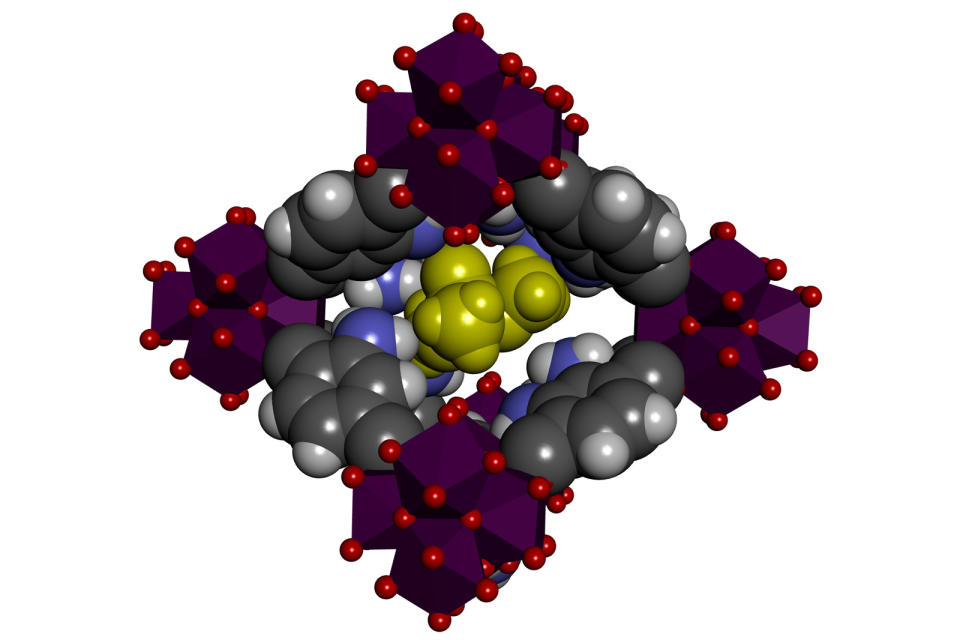Spongy electronic 'nose' can sniff out nerve gas and pesticides
It's the most sensitive gas detector of its kind.

When you're trying to detect extremely dangerous chemicals, you don't want to mess around -- even a tiny amount can spell big trouble. It's a good thing, then, that Belgian researchers have developed what could be the most sensitive gas sensor to date. Their electronic 'nose' uses spongy metal-organic frameworks (below) that can absorb and flag extremely tiny amounts of the phosphonates you find in harmful gases like sarin (aka a form of nerve gas) or pesticides. It's so sensitive that, in some cases, it can find just a few parts per trillion -- even the cleverest evildoer would likely have trouble hiding a chemical weapon.
The kicker is that it's extremely portable. You could apply the framework as a film on an existing circuit, so you could use your smartphone to spot chemicals. And yes, it'd be useful for more than security checks. KU Leuven imagines using this to spot lung cancer in your breath, or to determine whether or not your food has gone bad. You might never have to wonder whether or not an object is hiding something nasty, as the answer would always be close at hand.

